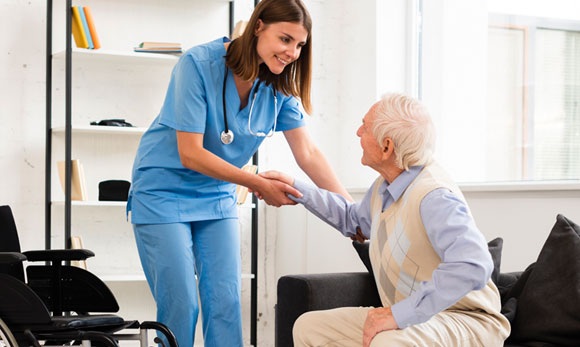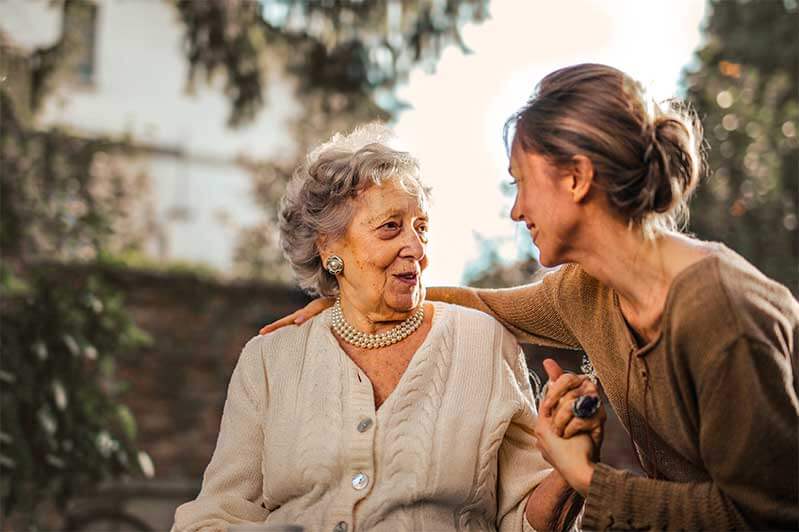Substance Abuse in the Elderly – A Growing Problem

Substance Abuse in the Elderly – A Growing Problem
In the last 4-5 years opioid abuse gained more and more attention and in the last 2 years has rightfully garnered national attention. The spike in overdose deaths from opiate abuse has been so dramatic that it helped in lowering the national life expectancy age for the first time in decades. But who is it that you think about when you hear of drug abuse and alcohol abuse? The answer tends to exclude our senior citizen population, but that is a mistake and who I want to focus on.
People find themselves addicted to and abusing some sort of substance for a variety of reasons and each issue effects everyone different. Life’s hurdles don’t stop once we hit a certain age. So ask yourself why does it seem implausible for our elderly population to turn to a substance for shelter or comfort. The number of older adults suffering from a substance abuse addiction is expected to more than double to 5.7 million people over the age of 50 by 2020 according to NCBI.
This Chart from SAMHSA highlights daily emergency room visits by elderly individuals.

As we age our families exit the home, our social order changes, friends and family members dwindle, they begin to pass on. Our physical health declines, for many- finances decline, home size declines. There are many realities that hit us hard and unexpected. This change in life can be seen as a period of grief which needs to go through its proper coping stages. Those stages are:
- Denial
- Anger, Pain & Guilt
- Bargaining
- The Turning Point- Seeking Resolutions
- Acceptance
There is no time period for any of the stages and some never make it through to acceptance. During this grief period some people may be susceptible to falling into an abusive problem. Some people just refuse to admit or accept that what was a casual activity has developed into an abusive dependency. Other people may never have had any of these but perhaps they had an injury or surgery that required pain relieving medicines that carried an addictive agent with it. A gigantic example is Michael Jackson. Jackson became addicted to pain and sleep medicine after his a pyrotechnic accident that caught him on fire. He was quietly addicted to pain and sleep medicine for over two decades before he one day overdosed. Other reasons can include chronic pain, and mental health medications. Benzos or Benzodiazepines (#3 on the SAMHSA chart above) are highly addicting, they are used to treat anxiety, pain and insomnia and very dangerous for seniors.
Below are some statistics from the National Council on Alcoholism and Drug Dependence, INC (NCADD).
- There are 2.5 million older adults with an alcohol or drug problem.
- Six to eleven percent of elderly hospital admissions are a result of alcohol or drug problems — 14 percent of elderly emergency room admissions, and 20 percent of elderly psychiatric hospital admissions.
- Widowers over the age of 75 have the highest rate of alcoholism in the U.S.
- Nearly 50 percent of nursing home residents have alcohol related problems.
- Older adults are hospitalized as often for alcoholic related problems as for heart attacks.
- Nearly 17 million prescriptions for tranquilizers are prescribed for older adults each year. Benzodiazepines, a type of tranquilizing drug, are the most commonly misused and abused prescription medications.
A medicare report found that 15% of older adults received some type of opiod after any type of hospitalization and nearly half of them requested a refill or continuous claims after 90 days of discharge.
Signs of substance abuse is harder to recognize in older adults. Substance abuse in the elderly just isn’t on our minds, its misdiagnosed or it is hidden very well by the person. However, there are some indicators that should cause concern and further investigation by those concerned.
- Can’t explain money shortages
- Hostility or defensiveness
- Depression
- Withdrawal
- Prescriptions from multiple Dr’s/pharmacy’s.
- Prescriptions emptied before expected
- Hiding prescriptions and alcohol consumption
- Altered Sleep patterns
- Unexplained bruises
If you suspect that someone or yourself has an addiction understand that empathy and communication is key to addressing the problem. Seek appropriate and professional help as soon as possible (preferably those focused on elderly addiction). Alcohol and drug use in elderly is harsher on our bodies as we age do to how our metabolism decreases and the increase in our brains sensitivities to these substances. A treatment plan for abusive dependencies are out there. Don’t ignore it, don’t try to do it alone. Reach out for assistance.
Places in Georgia for substance abuse centers:
https://www.gasubstanceabuse.org/
https://dbhdd.georgia.gov/substance-abuse-prevention
https://drugabuse.com/usa/drug-abuse/georgia/
National Organizations:
https://www.centeronaddiction.org/
Here are some links to articles and organizations for further readings.
https://www.addictioncenter.com/addiction/elderly/
https://www.lasencinashospital.com/blog/substance-abuse-elderly-overlooked-epidemic
https://www.ncbi.nlm.nih.gov/pmc/articles/PMC4146436/
https://www.samhsa.gov/data/sites/default/files/report_2792/ShortReport-2792.html
Disclaimer: This article is intended as a friendly reminder with recommendations. It is not medical advice, direction or prescription of any sort. Please refer to professional services for any health-related questions, concerns and relief.

Contact us
Reach Us
Our dedication to caring for our clients is more than just a job. “It’s a way of life.” Let us help you maintain your independence today!
4751 Best Road Ste 400B College Park GA, 30337
Phone: (770) 808 6070
Fax: (770) 679 8593






